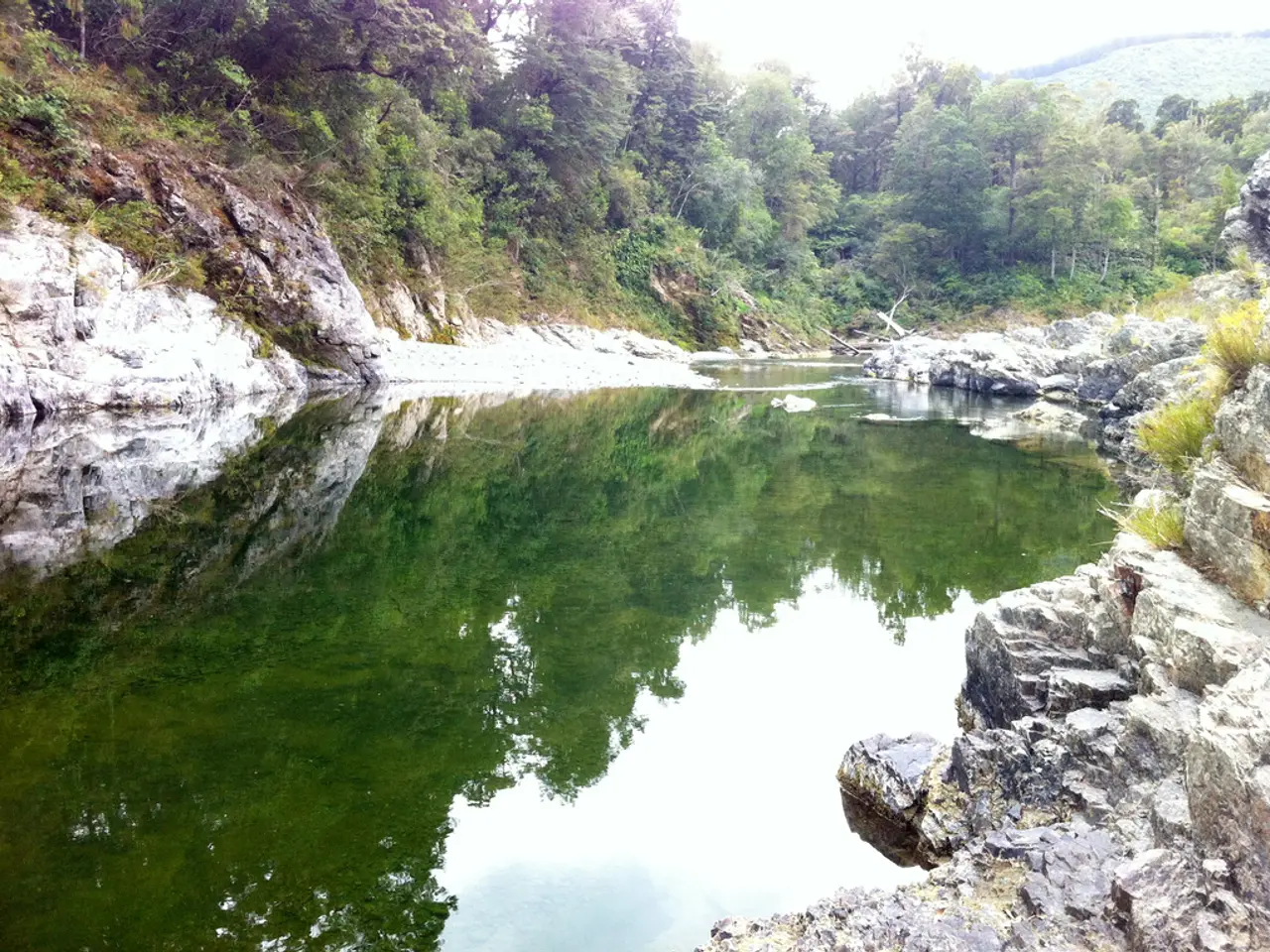Shocking Discovery: Asteroid Ryugu, found near Earth, apparently had liquid water inside, altering its interior structure
In a groundbreaking study published on September 10 in the journal Nature, researchers have proposed that asteroids could have delivered up to three times more water to Earth than previously thought. The study focuses on the asteroid Ryugu, which was visited by Japan's Hayabusa2 mission between 2018 and 2019, and its potential parent asteroid, which may also have spawned the asteroid Bennu, visited by NASA's OSIRIS-REx mission in September 2023.
The hypothesis that liquid water flowed on Ryugu in the past is based on isotopic analysis, specifically the excess Hf-176 found in the samples. This is far longer than most asteroids were thought to be able to hold onto their water. The researchers claim that a majority of Earth's water likely came from impacts with asteroids, comets, or other planetesimals in the early days of the solar system.
The team, led by Tsuyoshi Iizuka, a geochemist at the University of Tokyo, analysed the radioactive isotopes of lutetium (Lu) and hafnium (Hf) within the samples. They found chemical irregularities, which they attribute to the historic presence of flowing water within the asteroid. The researchers argue that ancient liquid water washing away a majority of Lu-176 within the samples could explain the excess Hf-176.
The study suggests that Ryugu's parent asteroid may have contained ice for at least a billion years after the solar system was formed. This finding has potential implications for how Earth acquired its own water. The team plans to analyze veins of phosphate within the samples to pin down a more accurate age for the water that flowed through Ryugu.
The researchers also plan to look more closely at the isotopes from asteroid Bennu to see if it too has signs of flowing water. If confirmed, this would further support the theory that asteroids played a significant role in delivering water to Earth.
The findings have potential implications for our understanding of the early solar system and the formation of Earth. The team's work underscores the importance of continued exploration of asteroids and other celestial bodies to uncover the secrets of our solar system's history.
Read also:
- Parliamentary Meetings in the Federal Diet of Germany this Week
- Hospital in Taos faces imminent closure due to looming federal budget reductions
- Intentional Arson and Countermeasures: Understanding the deliberate lighting of fires by experts and the advantages for certain forests and wildfires
- Proposal request for a worker radiation protection directive, addressing the risks associated with ionizing radiation exposure, put forth by the Commission.




